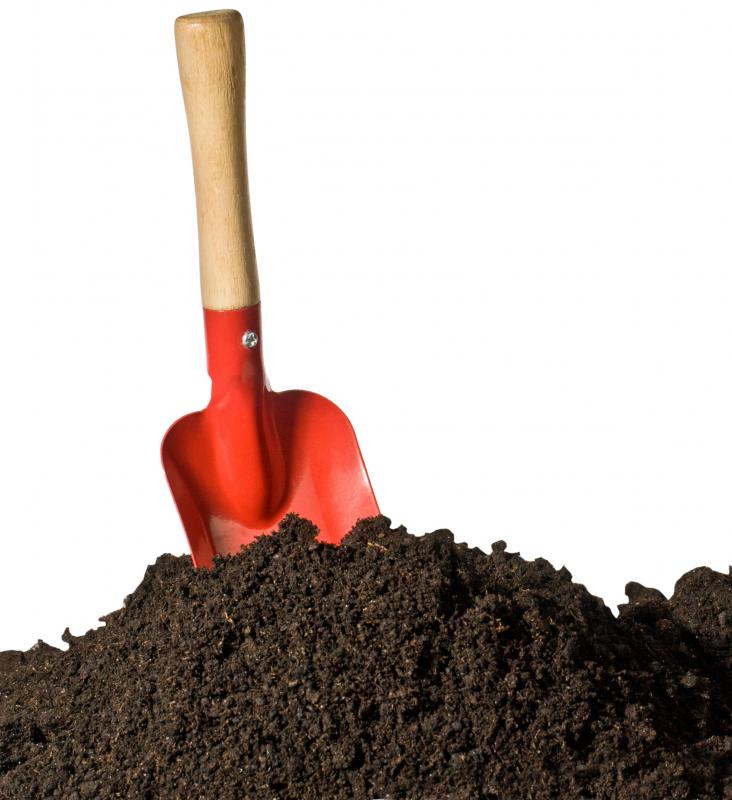At HomeQuestionsAnswered, we're committed to delivering accurate, trustworthy information. Our expert-authored content is rigorously fact-checked and sourced from credible authorities. Discover how we uphold the highest standards in providing you with reliable knowledge.
What are the Basics of Herb Garden Design?
Growing an herb garden at home adds both decorative flair and the convenience of having flavorful herbs close at hand. When planning a new herb garden design, the most important things to keep in mind are light, soil and plant compatibility. The spot chosen for the garden must get enough light, preferably full or partial sun, to keep the plants healthy. Most herb plants prefer soil with good drainage and plenty of organic matter. Another vital part of successful herb garden design is choosing plants that grow well in the selected location.
When choosing a location around which to base an herb garden design, consider whether an outdoor or indoor garden is a better choice. Different types of plants grow better in different climates. If the outdoor growing environment is extremely hot, cold or dry, it may be best to locate the herb garden near a sunny window indoors. In temperate locations, herb gardens usually thrive on the real sunlight available outdoors.

An indoor garden located in the kitchen can give a green touch to the decor and put the herbs right at hand for use in cooking. On the downside, herb plants grown indoors are not always attractive, and can sometimes attract bugs that may fly around the food preparation area. For these reasons, unless the outdoor growing area experiences extreme weather like high or freezing temperatures or destructive winds, outdoors is often the best place to harbor a thriving herb garden.

Growing plants in the right patch outdoors means they will get abundant, free light from the sun. It can also mean occasional free watering in the form of rain. Outdoor gardens in dry areas, however, require considerably more watering than indoor gardens because the sun and wind can dry soil quickly.
A necessary part of herb garden design is making it accessible, and watering accessibility is a big part of that. If an herb garden is small, a watering can may be enough to provide moisture to the garden. For a large herb garden design, especially outdoors, a running water source like a hose may be necessary to keep the garden watered without excessive effort.

When designing an herb garden in which different plants grow within the same container, choose plants that have similar soil needs, fertilizer requirements and watering schedules. If plants with different needs are placed in the same pot, one or all of the plants will suffer from improper watering. In some cases, improperly watered plant roots can rot, spoiling the whole planting container.
The needs of plants growing in ground soil and container soil are different. Successful herb garden design requires the right soil for the growing location and plant. Potting soil is soil designed especially for plants grown in containers, and it is generally the best engineered soil for this purpose. Usually, potting soil contains more material to encourage drainage, like peat moss. If the herbs are intended for eating, make sure to get a potting soil with organic fertilizer designed for food plants.
AS FEATURED ON:
AS FEATURED ON:













Discussion Comments
@umbra21 - That's why I usually keep my herbs in tubs rather than plant them directly into the ground. It means I can move them around if I have to as well, although I don't usually if I pick a good, sunny spot in the first place.
Small garden design really lends itself to pots and tubs as well, since you can place them in areas that otherwise wouldn't have any viable ground to plant.
@Ana1234 - There are a few things to keep in mind aside from the aesthetics. For one thing, make sure your herb garden is as close to the kitchen as possible, as it's the place you'll probably be visiting the most in the garden. If you have any herbs that you use more regularly than others, you might want to even keep them in pots inside, or hang some up to dry in a convenient space, rather than having to nip outside every time you make a meal.
For the same reason it's a very good idea to make sure there is a solid path to and from the herb garden, or you may end up treading the way into mud. A handful of flat stones or bricks will work wonders.
If you don't have a completely suitable microclimate for the kinds of herbs you want to grow, you might want to have an indoor herb garden. Herbs can be very fussy until they get established.
But once they are established they have a tendency to take over the place, which is why herb gardens are often separated from the rest of the garden. Mint in particular will spread like a weed if you let it.
There are some stunning herb garden designs on the internet if you need the inspiration. My favorite is one that is shaped like a spiral staircase, so that you can plant a lot of herbs in a single space and be able to reach all of them at your own convenience.
Even very simple shapes will look lovely though, once they are full of thriving herbs. The important thing is to make sure that it suits the rest of the garden plan and that it will provide herbs all year round, if possible.
Post your comments